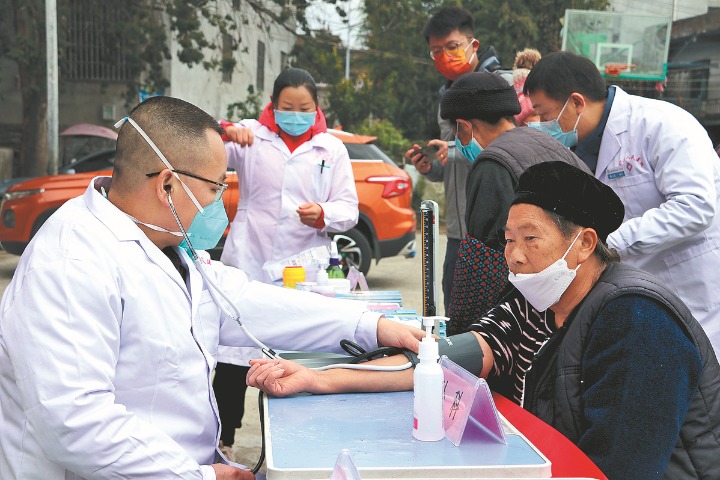Health tips for elderly people during COVID-19
At home
1. Stay at home and reduce outdoor activities and gatherings as far as possible. Contact relatives and friends over the phone or through the Internet.
2. Keep a regular schedule. Be early to bed and early to rise, and make sure you have a balanced diet. Take your temperature every morning and evening; normal body temperature does not exceed 37.3 ℃. Focus on your hobbies to keep you busy and give you pleasure.
3. Keep indoors properly ventilated. Open the window and ventilate 2-3 times a day for half an hour each time. Remember to keep warm since the temperature can change dramatically in the period where winter changes to spring.
4. Take medication regularly. Elderly people with chronic diseases should take their medicine regularly whether at home or in a nursing home. Do not change or stop taking medicines. If you are not feeling well, inform your family members or the staff of the nursing home in a timely manner.
5. Wash your hands properly. Remember to wash your hands before eating and after using the toilet, coming home, coming into contact with garbage or touching animals. When washing your hands, use running water and soap (liquid soap), and rub your hands for no less than 15 seconds.
6. Disinfect your home properly. The respiratory tracts of older people are relatively fragile and sensitive, so it is advised to choose disinfection products which cause less irritation. It is preferable to use 75 percent alcohol disinfectant wipes or diluted 84 disinfectant to clean the floor and furniture.
7. Do not panic. Should you have an acute fever, if there is no epidemiological history, you can first self-isolate at home and treat it as a common cold fever. Meanwhile, consult with relevant medical institutions and seek medical treatment in good time if necessary.
Going out
8. Wear a disposable medical mask. Elderly people with chronic lung diseases or heart diseases are not recommended to wear protective masks such as N95 and KN95.
9. Keep your distance from others. When you meet an acquaintance, greet each other from one meter away. Keep wearing a mask when entering crowded places like supermarkets. You can also wear gloves to minimize contact with public places.
10. Pay attention to breathing etiquette. Cover your mouth and nose with a tissue or a bended elbow when you cough or sneeze, and then wash your hands immediately.
11. Relax and do appropriate exercise. It is advised that you do calisthenics and Tai Chi. The exercise time is preferably 30-40 minutes, four to five times a week. Remember to warm up before exercising.
12. Make an appointment before going to hospital. It is best to make a call to the hospital so you understand the current situation, then make an appointment to minimize your time in the hospital. Choose your nearest qualified hospital with the fewest people, and only go in for urgently-needed medical examinations and treatment.
13. Do not believe or spread rumors. Get epidemic-related news and scientific prevention and control information through official and authoritative media.
Sources:
The National Health Commission
The Beijing Municipal Health Commission
The Beijing Center for Diseases Control and Prevention
The Beijing Health Education Institute
Please feel free to contact us by sending your questions to question@chinadaily.com.cn or commenting on China Daily app. We will ask experts to answer them.














